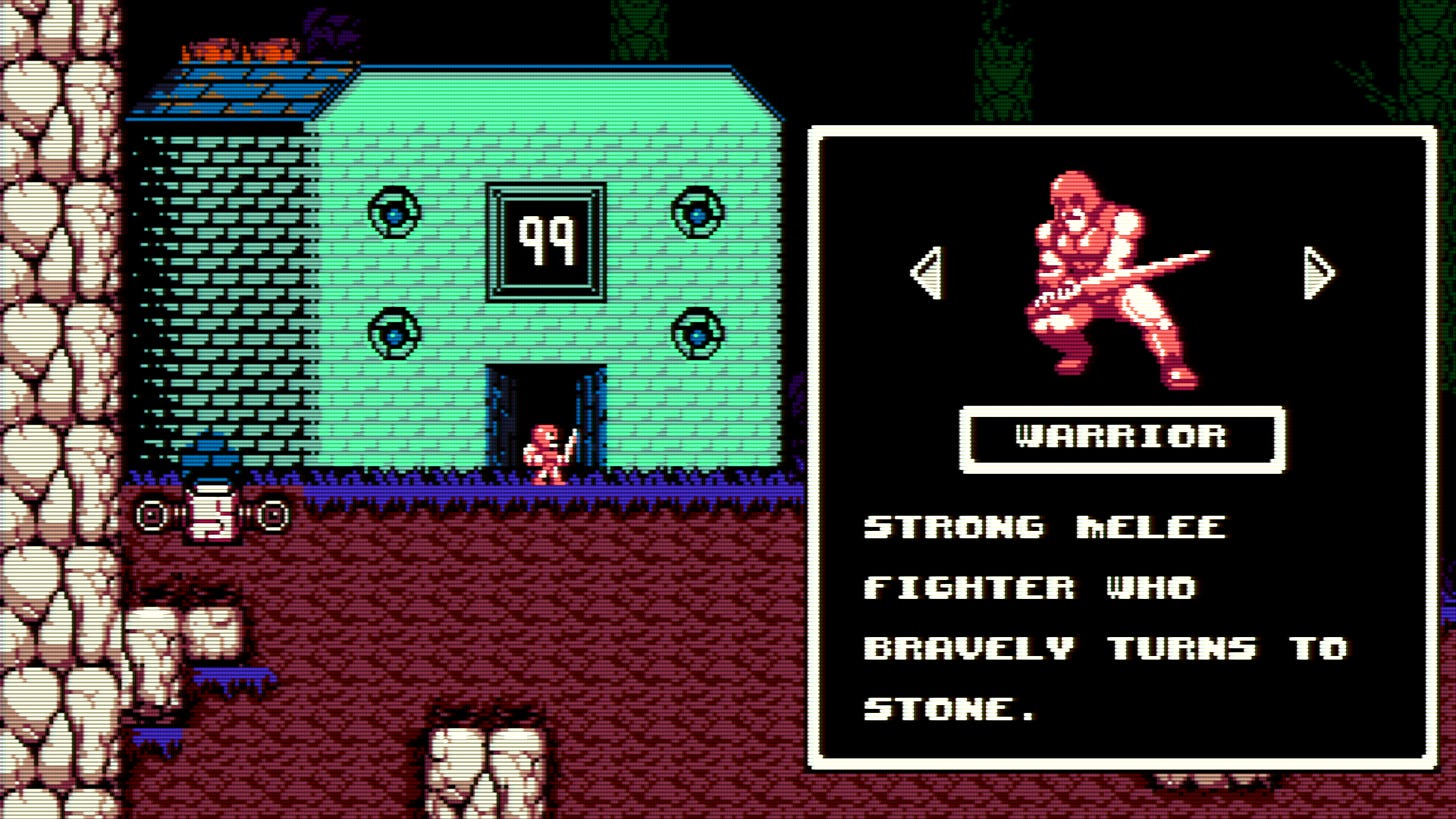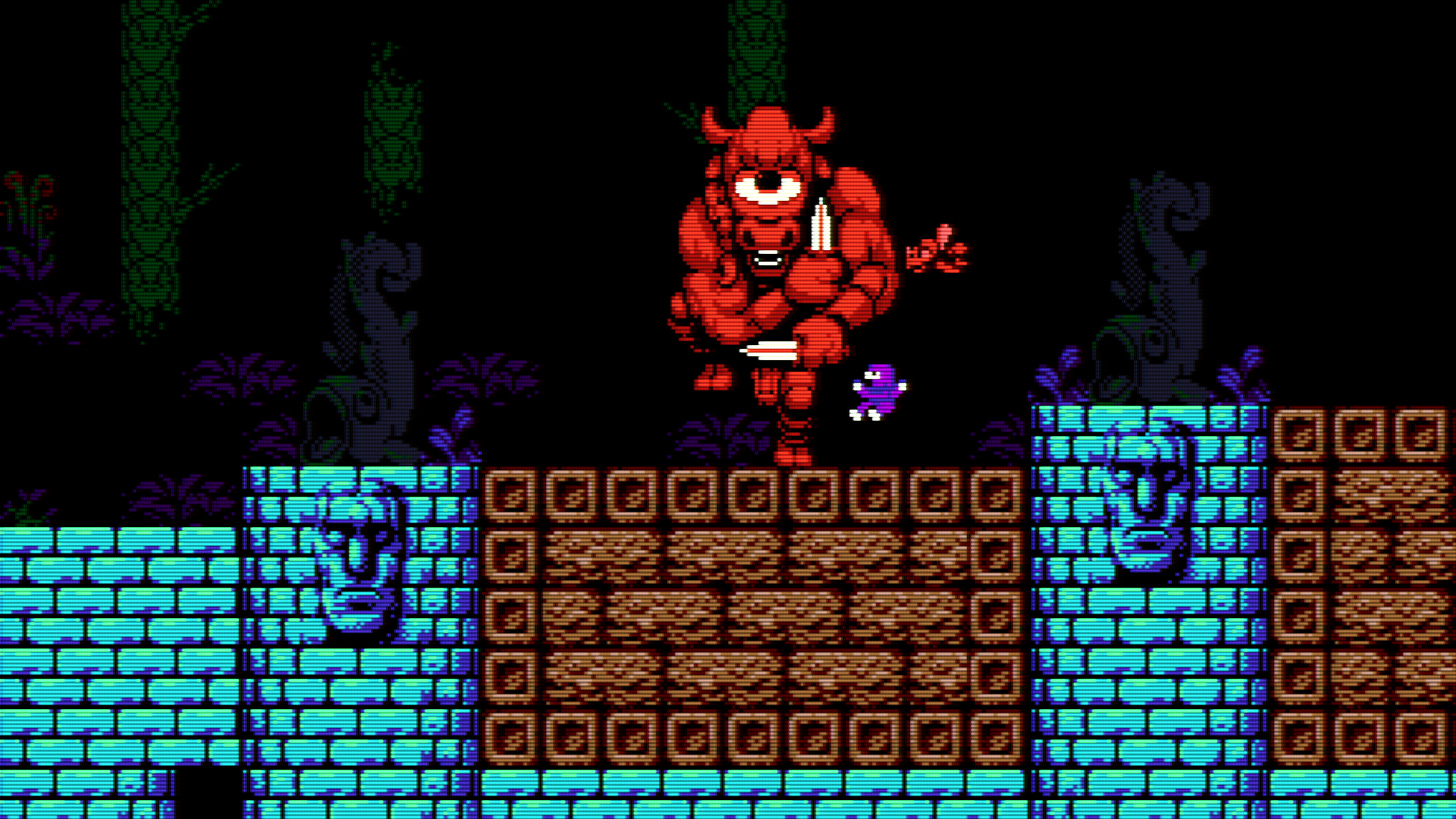UFO 50 finally has its first direct sequel, and there’s a fascinating sense of (artificial) history with this one. Where it stands in the collection chronologically is coming off the back of several years of iterations on the Search Action formula. Titles like Porgy, Vainger and Warptank all build upon that familiar design paradigm of worlds designed to be reframed the more you explore them.
In this latest entry UFOsoft have returned to a classic IP, this time with a wholly new set of ideas.
In the original Mortol, you had a generic stock of troops, each with a range of abilities designed to aid in your journey through a sequence of devilishly challenging levels, where optimization was the only route to victory. It became a juggling act, a skilled player can sacrifice one little dude to gain five more, or even minimize casualties all together through expertly weaving abilities and platforming prowess together into one harmonious loop.
What stood out about all this is that, despite all the chaos that ensued, you always knew where you were going, and what you needed to do to progress. In this sequel, that’s no longer the case, and it’s a fascinating thing to engage with.
Mortal II is such a diversion from the first game that at times it feels entirely unrelated. Gone is the level based mission structure, in its place a larger, interconnected world. No more are the jack of all trades faceless soldiers, in their stead a selection of ability-specific troops whose utility you have to figure out on the fly.
Replenishing your stocks? Don’t count on it, mister. This time you only have 99 little guys before it’s game over.
Mortol II is a game all about experimentation, and it's a hard sell at first. You’ll lose a good dozen troops just testing the waters of how and where you can navigate. Even once you’ve made a plan, you’ll swear yourself blind getting clipped by a wayward projectile or an enemy annoyingly just out of range of your weapons.
The frustration factor is big with this one, and in my time with the game I’ve really struggled to make peace with that. But eventually, something sticks. You push ahead enough and you start to understand the assignment, what all of this is in aid of.
Mortol II, like its predecessor, is a game about the future. Everything you do in the game is designed to aid the person that comes after you. Stone blocks, warp points, ammo caches, the challenge of the game, beyond the raw danger of the environment and everyone within it, becomes this intense moment of clairvoyance where you must decide where and when to sacrifice one of your guys to provide a boon for the rest of them.
These are decisions that may come to haunt you. A scout’s poorly placed portal can lead to the experience of being spawn camped. A stone block might just get in the way. A poorly placed pipe might drop you down into the depths of hell altogether.
It’s all fixable, of course, that’s the beauty of thoughtful design, but it might be too late by the time you realize this on a given run. Those 99 lives drain really fast if you aren’t strategic with their use, and the road to success, to seeking out the four hearts of darkness that make up the main quest, can only be paved by smart use of those bespoke abilities.
Sacrificing one to save a dozen failed attempts at a particular obstacle course is a no brainer once the eureka moment sets in, and it is in this moment that the game truly shines, moving it from…(sigh)…Metroidvania to Metroid-brainia.
Having said all that, I’m really not sure how I feel about this entry. It’s certainly engaging in a way very few games are these days, but it’s also incredibly irksome. You die hard and fast, mistakes are punished so severely that sometimes this feels like a troll game. You will hear the first few bars of each character’s theme tunes dozens of times to the point of madness.
It’s not going to be for everyone. But as an evolution of ideas from its progenitor, and the canonical library of work that emerged between these two entries, it certainly has lessons to teach, and I hope contemporary works are willing to learn.







